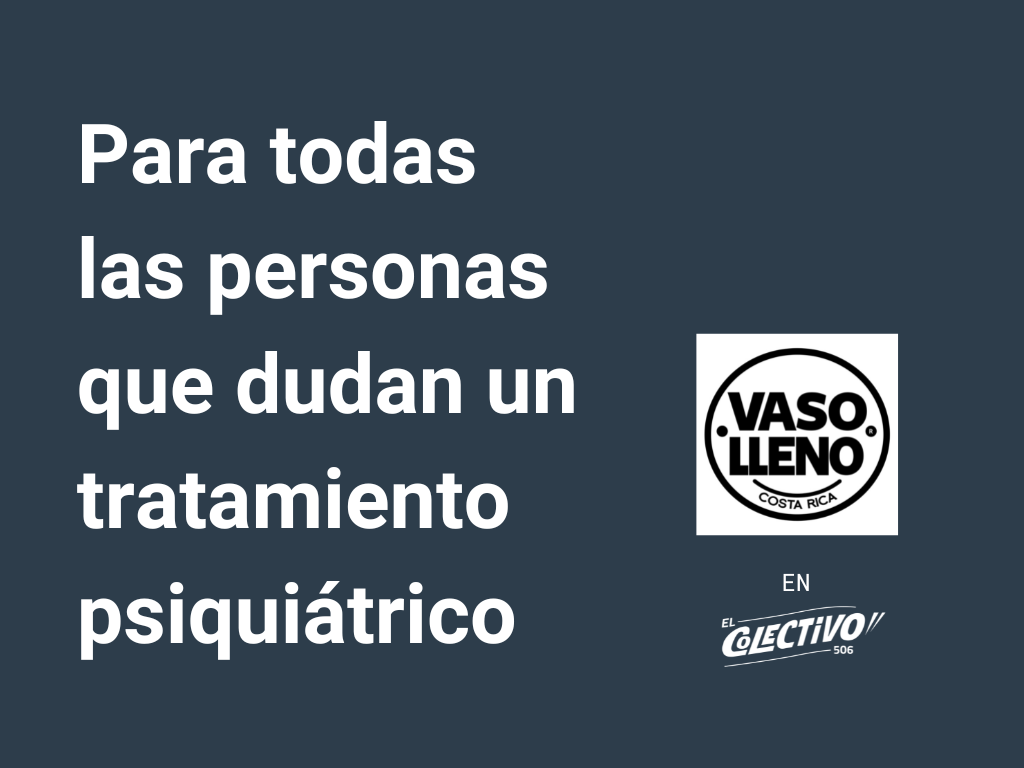This month, for our special edition on Mental Health, we are handing over our Media Naranja column—which focuses on love, in all its forms—to an initiative that has spent years creating a community passionate about breaking mental health stigmas in Costa Rica. The initiative is Vaso Lleno; its founder, Cris Gomar. On her social networks, she regularly shares messages of love and support for people facing various mental health challenges.
For today’s column, we share a message from Cris based on a Vaso Lleno post about psychiatry. Read the original post here.
I was like you.
For many years of my life I was anti-medication because 1) I was terrified of developing an addiction, 2) I was embarrassed to take psychiatric treatment, and 3) I believed that I could manage my anxiety and depression without the need for this type of medication.
In simpler words, this was 1) ignorance, 2) mental health stigma, and 3) ego.
It’s that simple.
After a conversation with a relative, I made the decision to seek help from a psychiatrist. Almost six months later I made the call to make an appointment. That’s how long it took me to actually do it. It cost me a lot. I knew it was the right, brave and responsible decision. I knew that agreeing to ask for help was good news. I was even excited to go. But knowing that didn’t make it any easier. They were not mutually exclusive. It was hard. It really was.
After years of not wanting to take medication, plus the six months that it took me to make the call, I arrived that day in the waiting room with a heart swollen with pride for the courage to be vulnerable and say, “I was wrong. I can’t do this alone. I need help.” Not only was I not ashamed to do it, I felt very happy, even smug.
That day, I told the psychiatrist about my anti-drug position and the reasons behind it. I concentrated on the third one: believing I could manage everything alone. With great pride, I told him that I had sought help with psychotherapy, oils, yoga, exercises and whatever else I could find, but it was not enough. I needed other help, and that was fine.
Now, when I’m asked about taking medications, I definitely recommend them, as long as 1) there is a health professional who is responsible and 2) a patient who is responsible. That is, someone who knows the dose, frequency, symptoms and reactions. A good professional who understands its use, its impact and possible side effects. A psychiatrist who can handle an emergency or make a dose adjustment. And, above all, a good psychiatrist who gives us confidence—because yes, it is strange. At first, it is very strange. But it is definitely a relief.
Life is different afterwards. Different in a good way.






